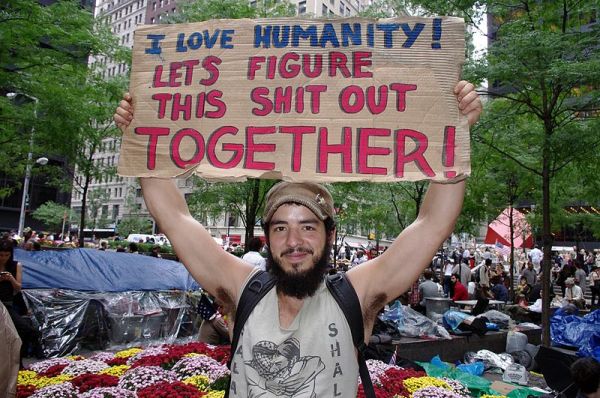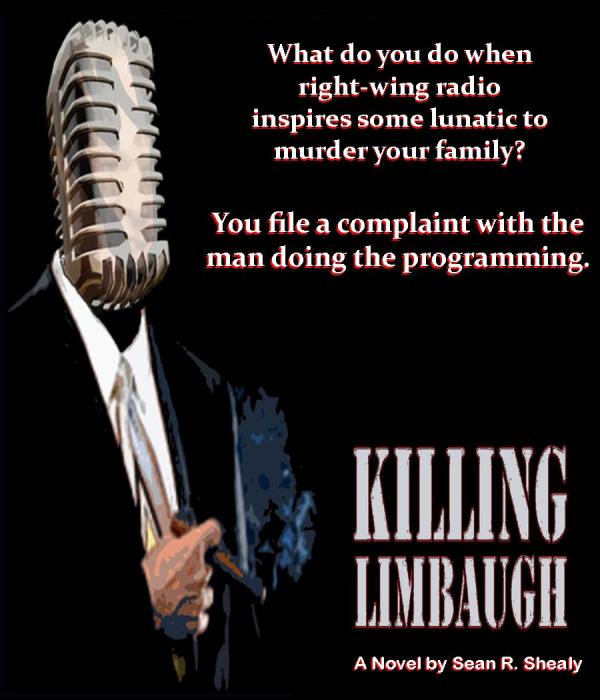The Creative Destruction of American Progressivism
“We can’t work with Lincoln, that slavery-supporting white supremacist!” progressives would have raged in the years before the Emancipation Proclamation. “I’ll never vote for the corporatist FDR, who REFUSES to support the unions!” we would have said, prior to the New Deal. “Lyndon Johnson? Another Texas good ole’ boy playing liberals for suckers!” we would have proclaimed in 1964.
The American Left is a powerhouse of creative destruction, often destroying ourselves and each other in the process of advancing our causes. As Michael Kazin writes in his excellent piece, Has The U.S. Left Made A Difference?, “Furious internal conflicts, a penchant for dogmatism, and hostility toward both nationalism and organized religion helped make the political Left a taste few Americans cared to acquire.”
We are outcasts and radicals, often ridiculed, stultified, and marginalized. We may believe in democracy, and the Power of the People, but our most suitable canvas is not politics — it is art, and spectacle. If the civil rights movement and the demonstrations against the war in Vietnam brought these movements into mainstream American consciousness, it was All In The Family and M*A*S*H that fully illuminated the subjects of racism and war.
Hawkeye and “Meathead” were parodies of the left, as Archie and Frank Burns were parodies of the Right; but it was easy to see who was seeking justice, and who were the guardians of an unjust status quo. Loretta Switt (“Hotlips”) and Colonel Potter even allowed us to witness an evolutionary path from one to the other.
Kazin writes:
“Some of the same qualities that alienated leftists from the electorate made them pioneers in generating an alluringly rebellious culture. Talented orators, writers, artists, and academics associated with the Left put forth new ideas and lifestyles that stirred the imagination of many Americans, particularly young ones, who felt stifled by orthodox values and social hierarchies. … Radical ideas about race, gender, sexuality, and social justice did not need to win votes to become popular. They just required an audience. And leftists who were able to articulate or represent their views in creative ways often found one.”
So what is our take-away here, what is useful to us, progressive activists?
A couple of things:
First, while we may be right and just in our principles, our puritanism is often personally and collectively destructive. No one likes to be called a fool, and the word bounces back and forth from establishment Democrat to radical activist and back again.
If you are a progressive activist, understand this: You, and I, are a tiny minority. We don’t have the votes to pass progressive legislation, and we are never going to have the votes to pass progressive legislation. By the time progressive legislation is ready to pass, we barely notice that reason has finally won, because, to us, it seems obvious that reason should have won in the first place.
But to the mainstream, even among those who share our values, these ideas seem radical, utopian, unreasonably so.
Consider one small plank of the progressive agenda: Free, universal college education.
To many people who share our values, this seems a great idea, well worth the investment. But it would be astronomically expensive, so they dismiss the idea as impossible, impractical. They don’t know what you know: That an educated taxpayer returns six times more to the treasury as it costs to educate him or her. There’s no point in calling your potential ally an idiot, and tossing her out of office in favor of a candidate who wishes to destroy public education altogether. Advocating your position will take time, and patience.
Art and movements are our vehicles, and both take time. Americans are not comfortable with radicalism, which is why radicals don’t win elections by popular vote. Politicians, elected by popular vote, naturally reflect the comfort level of the population. They won’t agree with you until they do. That requires art, rather than force.
We would be wise to temper our attacks on those most likely to agree with our views, and save the venom for our mutual adversaries. While it is true that FDR began his presidential career on a much more conservative platform than we would have chosen, had our opposition scuttled his election, America would have been much worse off for our efforts.
The second thing we can remember is to breathe.
“The arc of history is long, but it bends towards justice,” Martin Luther King, Jr. said famously.
We must bend with it, and understand that our place is not to win — which we do not accept even when it happens — but to struggle and carry on. Justice is a marathon, not a race, and our destiny is not to get the medal at the end, but to continue to shape the course upon which all compete, and in our vision.
It is in the molding of the collective consciousness that the question became, not ‘should the government be involved in healthcare?’, but, ‘what is the best path for the government to ensure access to healthcare?’
Kazin writes, “Without political power or honor as prophets, leftists still helped to make the United States a more humane society. By setting forth bold visions of a different future, they did much to initiate what became common, if seldom uncontroversial, features of American life.”
While progressive ideas and values require a long arc to fruition, they also endure the test of time. The progressive movement itself will endure, rising from the ashes of our self-destructive tendencies to light new fires with which to illuminate the path to justice, burning down the old, forging the new.
We will die before our work is finished — and we can be thankful for that, for it promises a life of righteous endeavor. We can take pleasure in the journey, if we take a long view of it, and we can perhaps hasten our success if we avoid putting stumbling blocks in the paths of those who run along with us, but a little behind.

